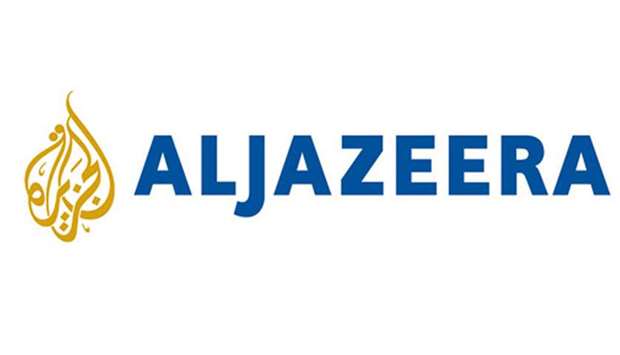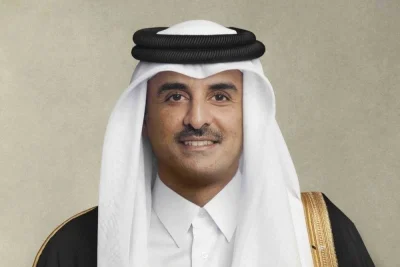Under the wise leadership of His Highness the Emir Sheikh Tamim bin Hamad al-Thani, the winds of enlightenment and change will continue to blow
The Saudi-led campaign to isolate Qatar has produced severe repercussions, especially for bi-national families, but once the dust settles, the net impact ironically could well prove a positive one for Qatar and the region.
This analysis is informed by more than just the instinctive optimism typical of businesspeople like myself, for even in the earliest stages of the air, land, and sea embargo, the real story has been how well-equipped Qatar was to withstand such pressure. In fact, when all is said and done, the entire affair may prove to have been the most successful campaign ever devised to demonstrate to the world the wisdom of a vision of a progressive, modern Gulf state launched by His Highness the Father Emir Sheikh Hamad bin Khalifa al-Thani in 1995, and perpetuated by His Highness the Emir Sheikh Tamim bin Hamad al-Thani.
In many ways, the embargo has been a major “stress-test” for the resilience and effectiveness of Qatar’s vision of constructive engagement across a broad spectrum of governmental, NGO and civil society relationships in the Gulf, across the broader region, and around the globe. In short, the country’s massive gas reserves, unrivaled position as the world’s leading exporter of liquefied natural gas (LNG), and its progressive governing philosophy have given it influence out of all proportion to its tiny size and population – and it has used that influence to build bridges across diplomatic, security and cultural divides to promote peace and prosperity for the benefit of its regional neighbours and international partners.
Qatar’s policy of constructive engagement through diplomatic dialogue and maintaining channels of communication with all groups - even those whose views differed strongly from its own, has time and again provided critical benefits to its neighbours and allies in conflict resolution. Challenging the old order of command and control of opposition voices, Qatar’s approach has built a network of friendship with allies, dialogue with opponents and a heightened awareness far and wide of the forces at work in the world. Even within the Arab and Muslim worlds – where the boycott leaders’ influence is strongest and most direct – most countries have either sided with Qatar or decided to remain neutral to pressure to join the boycott. Outside the Arab and Muslim worlds, the reaction has been even more lopsided: at the very least, most governments have called for dialogue rather than confrontation, many have openly questioned the validity of the accusations leveled against Doha, and several have responded by helping to shield Qatar against the immediate effects of the embargo.
Some countries have gone even further. German Foreign Minister Sigmar Gabriel, for instance, has sharply criticised the blockade on Qatar, arguing that diplomacy is the solution. Turkey has not only shipped large amounts of food to Qatar, but also rejected Saudi calls for it to close its military base in the country, accelerated its deployments to the facility, and scheduled joint exercises with Qatari forces after Ramadan. More importantly, the US State Department and leading analysts in the US policy community have cast serious doubt on both the boycott leaders’ allegations and motives. Since the boycott, the US Navy has held its own maneuvers with its Qatari counterpart, and the US Defence Department has signed a contract to sell Qatar 36 of one of its most capable weapons platforms, the F-15E Strike Eagle, with an option for 36 more.
To understand why Qatar’s web of alliances has held up so well under duress, we need to keep in mind how and why they have worked so well under normal conditions – and why, together with related domestic policies and an unwavering commitment to its own culture and traditions, they give the country so much potential for the future. In short, since Sheikh Tamim became Emir in 2013, the country has continued to open its arms to the world, proving itself a reliable partner and creating extensive interdependence with dozens of members of the international community, including the major powers of today.
Much attention on the strength of Qatar’s ties to the US is focused on Al-Udeid Air Base, which hosts more than 150 American warplanes, the headquarters of the US military’s Central Command, and a Combined Air and Space Operations Center that oversees US airpower in 20 countries, including the crucial theaters of Afghanistan, Iraq, and Syria. The largest of its kind in the Middle East, the base is indeed a significant contributor to the US-Qatari relationship and a de facto guarantee against foreign military aggression. But when it comes to everyday manifestations of bilateral co-operation, the security co-operation with both the US and European powers is just the tip of the iceberg.
Qatar also has been highly successful in expansive co-operation in business, culture, and education. The US and other Western consumer brands have accessed a small but vibrant market, Doha has made itself a de rigueur destination on the international sport, arts and culture circuit. Most impressive, some of the world’s most respected institutions of higher learning have established campuses in Qatar, from America’s Weill Cornell Medical College, Texas A&M’s Engineering Program, Georgetown’s school of Foreign Service, Carnegie Mellon’s business and IT Programs, and Northwestern’s famed School of Journalism to France’s Hautes Etudes Commerciales de Paris (HEC) and Britain’s University College London. No country in the Arab world has approached this level of success in academic partnership with global leaders in higher education, with students travelling from around the globe to pursue their dreams at Doha’s Education City.
Nor are the benefits of Qatar’s openness to the wider world one-sided. Qatari gas fuels industrialisation, manufacturing, and power generation with global business partners in countless countries, providing a cleaner alternative to other hydrocarbons at a time when economic development goals often clash with environmental ones. Meanwhile, Qatari investments create jobs, improve living standards, and stabilise financial markets around the world, and the nation's highly celebrated air carrier, Qatar Airways, offers travelers unparalleled comfort and service while flying to some 150 destinations.
Sheikh Hamad’s first act on taking power in 1995 was to abolish the Ministry of Information, preferring an open market of ideas, political philosophies, educational curiosity and open debate. Unaccustomed as they are to the attentions of a free press, many governments have objected to the views aired on Al Jazeera, Qatar’s state-sponsored satellite television station. But the global brand it has built and the quality of the coverage it produces is unmatched anywhere in the Middle East, North Africa or the Islamic world at large. What is more, Al Jazeera has set a welcome example for others in the region to follow, although most have yet to embrace the fact-based reporting, investigative journalism and the point-counter point debates that have been its hallmarks in both Arabic and English.
These and other examples of Qatar’s rapid emergence over the past couple of decades were undertaken as part of a long-term vision, one that aims to put the country on the world stage – and keep it there – by, for instance, promoting greater respect for freedom of speech, fundamental human rights, and other progressive values. That vision has come at a cost, too, since it frequently clashes with the old policies of command and control to which some of Qatar’s neighbors still cling. Even before the current boycott, earlier attempts to isolate Qatar were made in 1995 and 2014. Indeed this followed a similar effort among Gulf partners against Oman in 1980 to block its security relations with the US. It is truly an irony of history that the courage of HM Sultan Qaboos to allow US prepositioning of defensive war material in Oman was a critical asset to the immediate defence of Saudi Arabia’s northern border after Iraq’s invasion of Kuwait, and supported Kuwait’s liberation in the first Gulf War.
Qatar’s most important steps have been taken hand-in-hand with Western and other foreign partners, in education, sports, tourism, the arts, indeed a broad spectrum of cross-cultural relationships of trust and confidence that are now self-sustaining. As a result, the Qatari experience since His Highness Sheikh Hamad bin Khalifa al-Thani, the Father Emir, took power in 1995 offers important guidance for other reform-minded societies aspiring to sustainable progressive government and long-term peace and prosperity.
The power of progressive reform is now being demonstrated by the failure of this boycott to achieve its goals. Reflecting on its long list of achievements in global engagement, now culminated in its hosting the 2022 FIFA World Cup, the planet’s most popular sporting event, two generations of Qatari leadership have refused to try and shut the world out, instead welcoming the world in while carefully safeguarding the culture and values of its traditions and its people. The World Cup is a historic example of how far the country has come in such a short time, and the benefits of constructive engagement in the Arab Gulf while preserving traditional values.
This openness to different ideas, open debate and advanced education have been the hallmarks of modern Qatar. Over the past couple of weeks, however, we have all gotten an advance preview of how threatening truly progressive reform can be to those seeking to hold on to the past. The boycott leaders have focused unprecedented attention on Qatar, and the strength achieved by Qatar’s constructive engagement with the larger world has been on display for all to see: stable, secure, soberly governed, and strongly supported by a network of interlocking friendships and alliances around the world.
One day the boycott effort will end, and hopefully sooner rather than later – but the edifice of progressive statecraft will remain, tried and tested by difficult times, primed and ready for better days. For it is the courage to embrace the inevitable arch of change, to see and engage the world as it is, that has best prepared Qatar and its people to meet this test, and the future. Under the wise leadership of His Highness Sheikh Tamim bin Hamad al-Thani, the winds of enlightenment and change will continue to blow.
*Roudi Baroudi is CEO of Energy and Environment Holding, an independent consultancy based in Doha.



